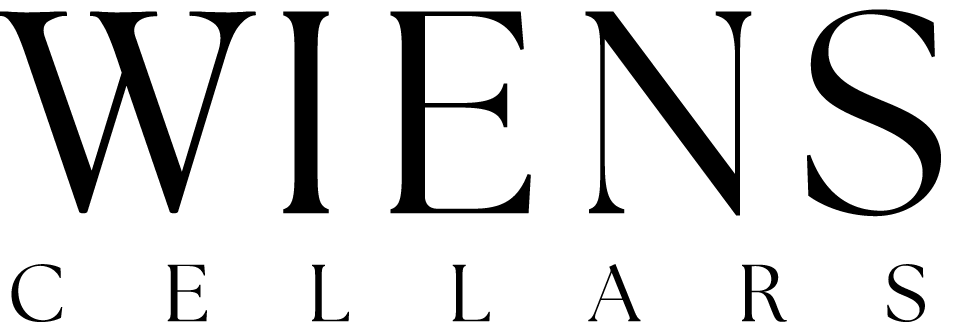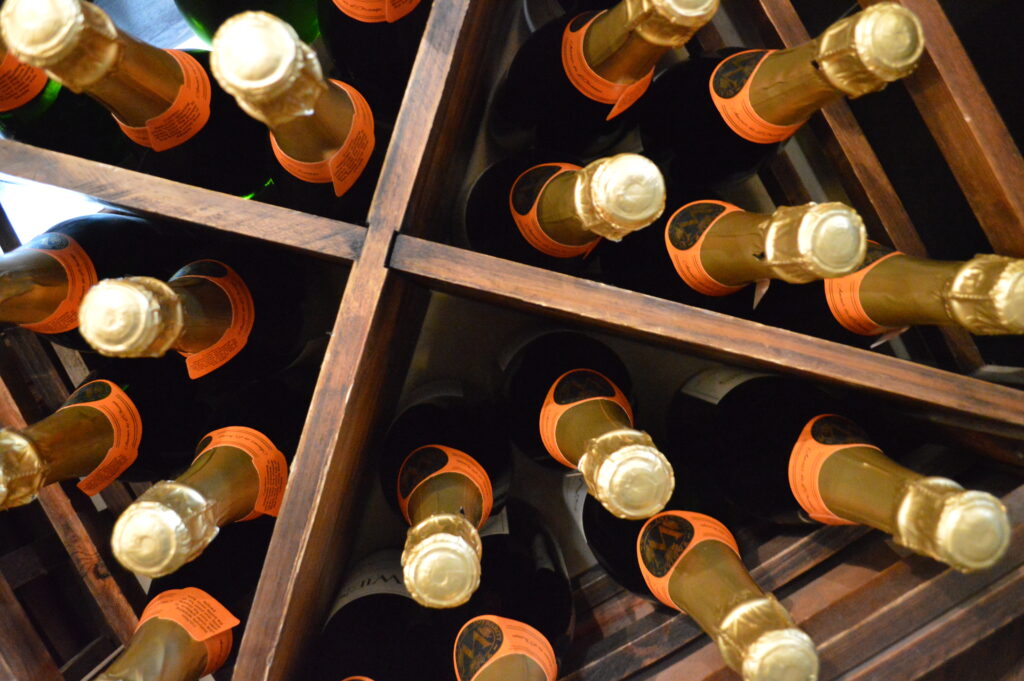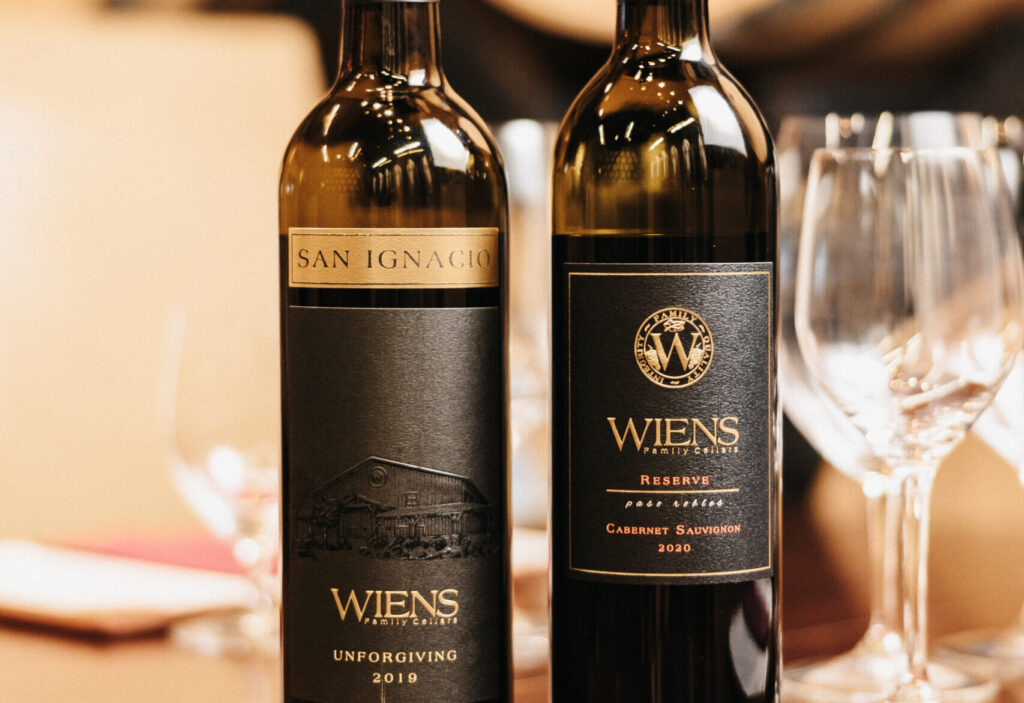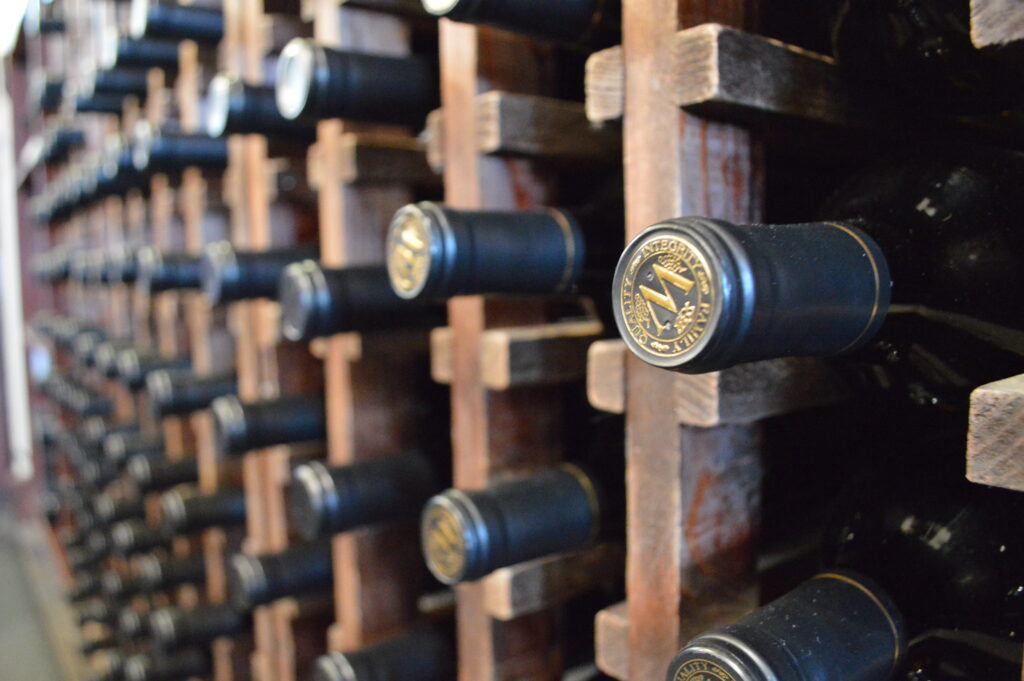In the world of wine, proper storage is often a key factor in determining the quality and flavor of your favorite bottle. The way you store your wine at home can significantly impact its taste and aroma. To ensure that you experience your wine at its best, it’s essential to understand the art of wine storage. In this comprehensive guide, we will explore the fundamentals of home wine storage and provide you with tips to keep your wine collection in its prime. We’ll also delve into expert insights from the team at Wiens Cellars.
Understanding Wine Storage Basics
The Role of Temperature in Wine Storage
Temperature plays a pivotal role in wine storage, as it significantly influences the aging and overall quality of the wine. For those who appreciate fine wines, maintaining the correct temperature is non-negotiable.
Wine should be stored at a consistent temperature, ideally between 55-59°F (12-15°C). This range allows wine to age gracefully. When the temperature deviates beyond this sweet spot, several issues can arise:
-
Too Warm: If stored at temperatures above 70°F (21°C), wine can age too rapidly, leading to a premature loss of flavors and aromas. Additionally, high temperatures can encourage the expansion and contraction of the wine, potentially pushing the cork out and introducing oxygen to the bottle.
-
Too Cold: Extremely low temperatures, below 45°F (7°C), can cause wine to freeze, which may push the cork out or even shatter the bottle. Moreover, very cold temperatures can hinder the aging process and mute the wine’s flavors.
-
Temperature Fluctuations: Rapid temperature changes, such as daily fluctuations, are detrimental. These fluctuations can cause the wine to expand and contract, pushing air in and out of the bottle, which may lead to oxidation.
In essence, temperature stability is paramount for wine storage. A wine cooler or cellar with climate control is ideal for achieving this stability. It ensures that your wines remain in a consistent environment, allowing them to evolve gracefully.
Importance of Humidity, Light, and Stability
Beyond temperature, several other factors are essential for proper wine storage:
-
Humidity: Maintaining proper humidity levels, around 60-70%, is crucial for wine storage. Why? Because it helps keep corks from drying out. When corks dry out, they can lose their seal, allowing air to seep into the bottle and spoil the wine. This is why you’ll find wine cellars humidified to ensure the corks stay plump and airtight.
-
Light: Wine is highly sensitive to light, particularly ultraviolet (UV) light. Exposure to UV light can result in the deterioration of wine by creating undesirable odors and off-flavors. For this reason, wine should be stored in a dark environment, and bottles should be shielded from direct sunlight. Many wine storage units, including wine coolers and cellars, come with UV-protected glass to safeguard the wine.
-
Stability: As a wine ages, it can produce sediment, especially in red wines. To allow this sediment to settle at the bottom of the bottle, wines should be stored undisturbed. It’s also a reason to ensure the stability of wine bottles when stored on their side. This practice keeps the cork moist and airtight, preventing any potential issues due to a dry cork.
By comprehending the significance of these factors, wine enthusiasts can better appreciate the role of temperature, humidity, light, and stability in the wine storage process. Whether you’re utilizing a professional wine storage solution or creating your own at home, a good grasp of these fundamentals will lead to a well-preserved and enjoyable wine collection.
Creating a Home Wine Storage Solution
Options for Wine Storage at Home
When it comes to wine storage at home, you have several options to consider. The choice you make depends on the size of your collection, your available space, and your personal preferences.
- Wine Racks: Wine racks are a popular and accessible choice for wine enthusiasts. They come in various sizes and materials, from wooden to metal racks. Wall-mounted, freestanding, or modular designs allow for flexibility in fitting them into your living space.
- Wine Coolers: Wine coolers or wine refrigerators are perfect for those who want a dedicated space for their collection. These appliances maintain consistent temperatures and humidity levels, ideal for aging wines. They come in various sizes, from small countertop units to larger built-in models.
- DIY Wine Cellars: If you have the space and resources, creating a custom wine cellar can be a rewarding project. This option provides the most control over storage conditions. You can convert a spare room, basement, or even a closet into a wine cellar. Climate control systems, proper insulation, and wine racks are essential components.
David Steinhafel reflects on the value of home wine cellars: “Having a dedicated wine cellar not only ensures ideal conditions for our wines but also adds a touch of elegance to your home.”
Considerations for Selecting a Storage Solution
When choosing a wine storage solution for your home, there are several critical factors to consider:
- Space and Capacity: Assess the available space in your home and the size of your wine collection. Ensure that the chosen storage option accommodates your current and future needs.
- Temperature Control: Wine is sensitive to temperature fluctuations. Look for storage solutions that offer temperature control, or choose a location in your home that maintains a consistent, cool temperature.
- Humidity and Ventilation: Proper humidity levels and ventilation are vital to prevent corks from drying out and to maintain wine quality. Wine coolers often handle these aspects effectively.
- Light Protection: UV light can be harmful to wine. If you opt for a wine rack or cellar, ensure the area is shielded from direct sunlight or use UV-filtering curtains or glass.
- Budget: Different storage options come with varying costs. Determine your budget and invest in a solution that suits your financial constraints.
When in Doubt, Make Do With What You Can!
Let’s explore three DIY wine storage hacks that can be beneficial for those looking to create a unique storage solution:
- Under-Stair Wine Cellar: If you have unused space under a staircase, transform it into a wine storage area. You can build custom wine racks to fit the available space. Ensure proper insulation, humidity control, and temperature management for a functional and stylish under-stair wine cellar.
- Wine Crate Wall: Collect wooden wine crates, which are often available for free from local wine shops or can be purchased inexpensively. Mount these crates on a wall to create rustic and functional wine storage. It’s a flexible solution that can expand as your collection grows.
- Repurposed Furniture: Find an old cabinet, hutch, or armoire and convert it into a unique wine storage piece. Add wine racks, glass holders, and shelves inside. This DIY approach gives you a decorative and functional wine storage unit that complements your decor.
By assessing your storage needs, budget, and available space, you can select or create a wine storage solution that preserves and displays your collection effectively. These DIY hacks offer a creative and budget-friendly way to store your wines at home.
Temperature and Wine Aging
Temperature is a critical factor in wine aging. It significantly influences the chemical reactions that take place within the bottle. Different types of wine benefit from specific temperature ranges. For example:
- Red wines: Red wines generally fare well in slightly warmer conditions than white wines. A range of 55-65°F (12-18°C) is ideal for aging most reds. They need a bit more warmth to allow their flavors and aromas to evolve gracefully.
- White wines: White wines prefer cooler temperatures for aging. A range of 49-55°F (9-13°C) is suitable for most whites. This cooler environment helps maintain their freshness and acidity.
- Sparkling wines: Champagne and sparkling wines should be stored at around 45°F (7°C) to keep the bubbles lively and the wine refreshing.
Wiens Cellars’ Insights
Wiens Cellars, a renowned winery known for producing high-quality wines, has its own approach to wine storage. For David Steinhafel, the key to success lies in careful planning: “When it comes to Wiens Cellars wines, we put immense effort into crafting them, and we’re just as meticulous about their storage.”
Brian Marquez adds, “The wines we create are the result of a harmonious partnership between our winemaking and storage techniques. The right storage environment is vital in maintaining the character of the wines.”
Managing Humidity and Light
Humidity and light are two other essential considerations in home wine storage.
- When it comes to humidity: The ideal humidity level for wine storage is around 70%. This helps prevent corks from drying out and allows the wine to age gracefully. If the humidity is too low, corks can shrink, allowing air to seep into the bottle, which can spoil the wine.
Conversely, excessively high humidity can lead to mold growth on labels and packaging.
- Regarding light exposure: UV rays are particularly harmful to wine. To protect your wine, it’s advisable to store bottles in a dark place or use light-proof glass or window coverings.
David Steinhafel elaborates, “Even when our wines are stored in our cellar, we’re keen on ensuring they are kept in a place with minimal light exposure. We’re meticulous about every aspect of the process.”
Bottle Orientation and Stability
The orientation of wine bottles is often a subject of debate. Some argue that storing bottles on their sides keeps the cork moist, while others say that modern corks are designed to remain airtight even when stored upright.
Brian Marquez explains, “While storing bottles on their sides is ideal for long-term aging because it keeps the cork moist, it’s not a strict requirement. What’s essential is maintaining a stable environment.”
Regardless of orientation, it’s vital to ensure that your wine collection remains undisturbed. Vibrations and frequent movement can negatively affect the aging process. Keep your wine stable and avoid unnecessary disruptions.
Organizing and Cataloging Your Wine Collection
As your wine collection grows, keeping it organized becomes increasingly important. It helps you keep track of your wines, ensuring you drink them at their peak. Several methods can help you organize and catalog your wine collection:
- Notebooks and spreadsheets: A simple and cost-effective method. Create a system that tracks the wine’s name, vintage, and other essential details.
- Wine apps and software: Numerous apps and software are designed to help wine collectors organize their collections. They offer the advantage of accessibility from various devices and can often provide information on when to drink a particular bottle.
Brian Marquez suggests, “For those with extensive collections, wine management apps can be a game-changer. They offer a comprehensive view of your collection, including optimal drinking windows.”
Wiens Cellars’ Recommendations
At Wiens Cellars, we understand the significance of proper wine storage and its impact on wine quality. Our owner, David Steinhafel offers valuable insights for enjoying Wiens Cellars wines at home: “We create our wines with the utmost care and precision. When you take our wines home, we want you to enjoy them in their full glory.”
To ensure you make the most of your Wiens Cellars wines, here are a few recommendations:
- If you plan to consume the wine within a year or two, a wine cooler with precise temperature control is an excellent choice. It provides a balanced environment for your wines.
- For those who prefer to age their wines for several years, creating a small wine cellar or using a professional storage service ensures the right conditions for long-term aging. It’s an investment that pays off in the long run.”
David Steinhafel further adds, “Our wines reflect our commitment to producing exceptional quality. The care you put into storing our wines is equally important.”
As you venture into the world of wine collecting, remember that the journey doesn’t end with acquiring remarkable bottles. How you store, manage, and eventually enjoy your wines plays a pivotal role in the entire experience. Proper storage maintains the quality and integrity of your collection, ensuring that each bottle is as exquisite as the day it was crafted. With a fundamental understanding of temperature, humidity, light, and stability, you can create the ideal environment for your wines. Whether you choose a wine rack, cooler, or a dedicated cellar, maintaining the right conditions is an investment in the future pleasure of savoring your wines. Trust us, it’s worth it to invest in your palate!




